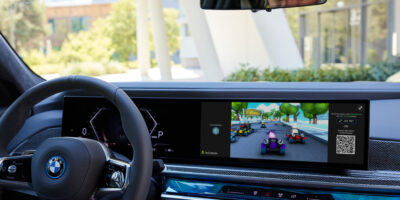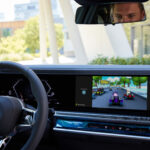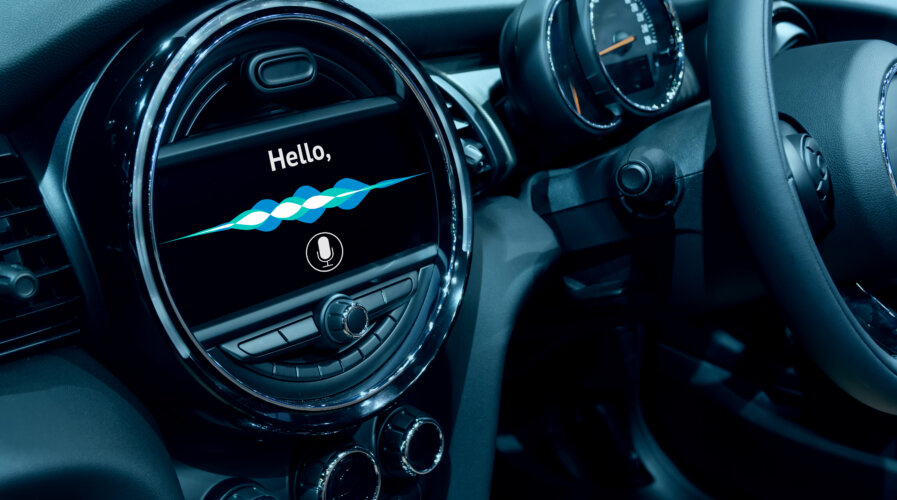
Continental and Google Cloud to create intuitive user experience for drivers. (Image – Shutterstock)
Google Cloud and Continental to equip generative AI in cars
- Google Cloud and Continental partner to bring generative AI in cars.
- Drivers can interact with their car in a natural dialogue.
- Continental is the first supplier to pave the way for HPC-driven vehicle architectures.
Remember KITT from Knight Rider? Not only was it an icon of the 80s, but it was also one of the first real potential capabilities of artificial intelligence (AI) in cars.
Fast forward to the present, and AI is now a fundamental part of modern cars.
The possibilities of AI in cars are enhanced thanks to the capabilities of generative AI. Generative AI technology is already being implemented in almost every industry today. From financial services to healthcare, generative AI’s capabilities in completing tasks effectively and conveniently make it the key technology industries want to use to improve their business outcomes.
Despite concerns about how the technology works, a report by Bloomberg Intelligence highlights that the generative AI market is poised to explode, growing to US$1.3 trillion over the next 10 years from a market size of US$40 billion in 2022. Rising demand for generative AI products could also add some US$280 billion of new software revenue, driven by specialized assistants, new infrastructure products, and copilots that accelerate coding.
Given the popularity and increasing use of generative AI, it was only a matter of time before the technology would find itself in automobiles. AI in cars has been around for some time. In fact, most smart and autonomous vehicles already have some form of AI built into their system to control their operations.
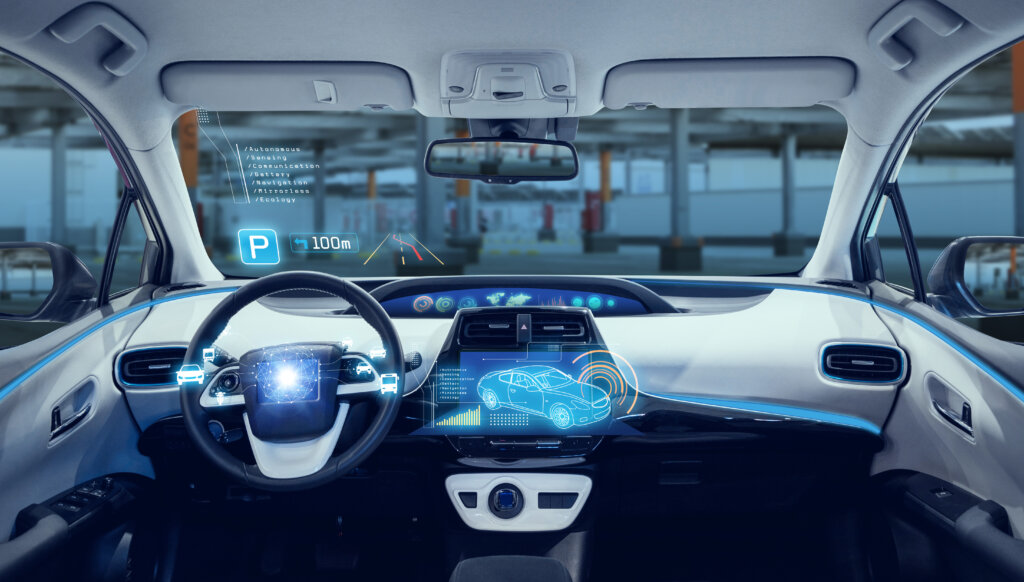
Tech companies are working with vehicle manufacturers to improve AI in cars. (Image – Shutterstock)
NVIDIA has built a software-defined, end-to-end platform for the transportation industry that enables continuous improvement and deployment through over-the-air updates. It delivers everything needed to develop autonomous vehicles at scale.
For autonomous vehicles, the NVIDIA DRIVE Chauffeur is an AI-assisted driving platform based on the NVIDIA DRIVE AV SDK, and can drive from address to address. For those who want to drive themselves, it can also provide active safety features and intervene in dangerous scenarios. NVIDIA is also working with BMW Group to transform the automotive manufacturing lifecycle by building AI-enabled, simulated digital twins of the BMW factory.
Microsoft and Mercedes Benz have partnered to test in-car ChatGPT AI, which is now available to more than 900,000 vehicles in the US. According to a report by CNBC, the luxury automaker said the emerging technology will be used for audio requests through its ‘Hey Mercedes’ voice assistant, which is expected to greatly expand the system’s capabilities. It is the first implementation of ChatGPT in a vehicle.
Apart from these big car manufacturers, Chinese autonomous vehicle makers, as well as companies like Tesla, continue to innovate AI in cars towards greater possibilities. Some areas in China and the US have allowed autonomous vehicles on the streets – though they have not been popular everywhere.
AI in cars, however, is about more than just a driving system. Users want a car they can do a lot more with. While we may never see vehicles that can transform into robots or even time travel, being able to talk to a car can be quite an interesting experience.
And that’s exactly what Continental and Google Cloud are working on right now.
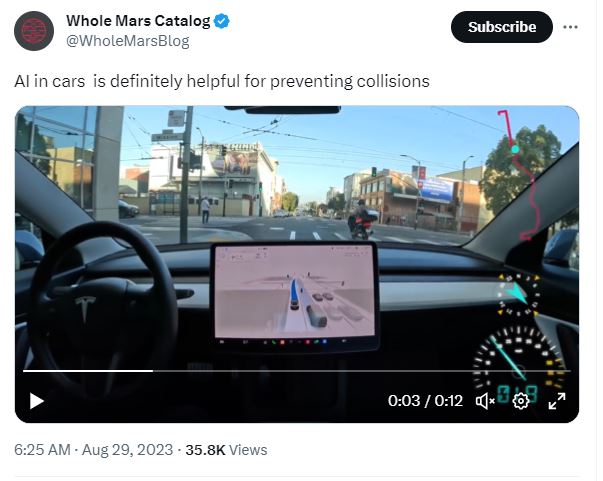
AI in self-driving vehicles – helping reduce human error.
Generative AI in cars
Generative AI in cars is still a relatively new field that automotive vehicle suppliers are looking into. In a new partnership with Google Cloud, Continental, a mobility company, is planning to equip cars with generative AI.
As one of the first automotive suppliers to integrate Google Cloud capabilities directly into vehicle computers, Continental hopes generative AI in cars can enable a driver to interact with their car in a natural dialogue.
Like KITT from Knight Rider. From asking questions about routes, tire pressure and even finding local places of interest, Continental explained that the generative AI can compile the required information and answer the drivers’ questions.
“Together with Google, we are bringing AI to the vehicle cockpit and are creating an intuitive experience for drivers. Based on our Smart Cockpit High-Performance Computer, we expect our solution to be ready for production within just 18 months of development time. This is how our vision of software-defined vehicles starts to become a reality,” said Philipp von Hirschheydt, a member of Continental’s Executive Board and head of the Automotive group sector, at the company’s IAA MOBILITY press conference.
At this year’s IAA MOBILITY, Continental is showcasing the integration of the generative AI system in its Smart Cockpit High-Performance Computer (HPC) solution with a demonstration vehicle. With its solution, Continental is serving a broad market – market observers are anticipating that, over the next ten years, sales of high-performance vehicle computers will account for tens of billions of Euros.
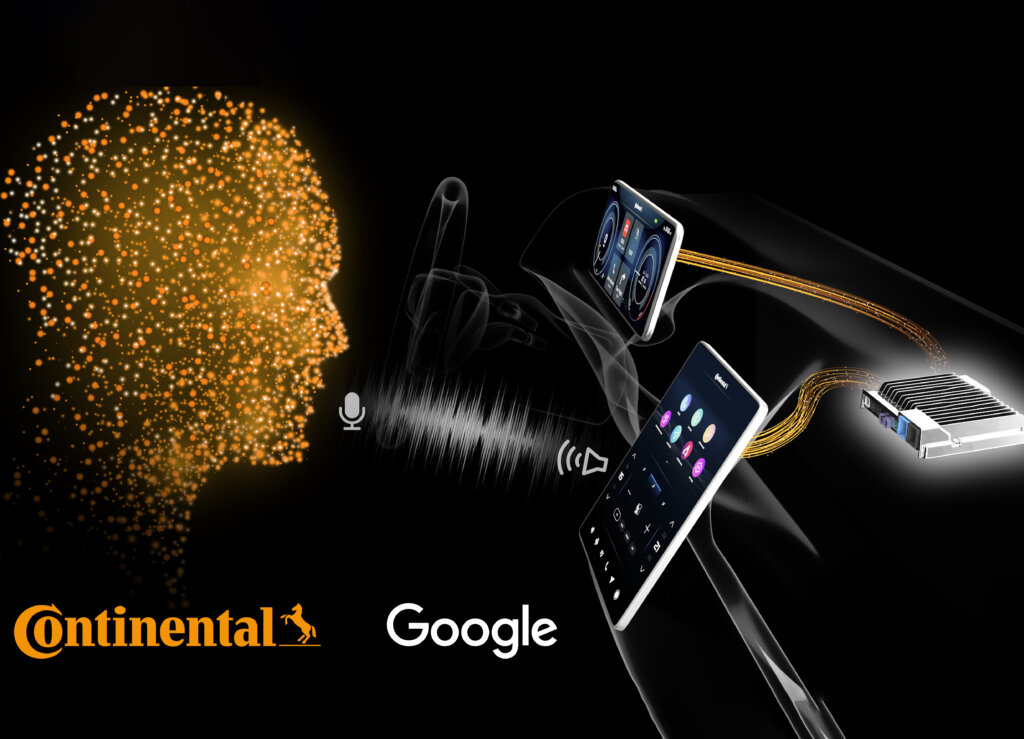
Continental was the first supplier to pave the way for HPC-driven vehicle architectures. (Source – Continental)
Smart Cockpit High-Performance Computer
Continental is also offering another building block for the ecosystem from the road to the cloud and is expanding the functions for instrumentation, entertainment and driver assistance that are pre-integrated in its Smart Cockpit HPC. The Smart Cockpit HPC combines user experience and system performance while meeting customer requirements for typical cockpit designs with driver and center displays. This all means a fast time to market – from order receipt to production in 18 months.
Continental was the first supplier to pave the way for HPC-driven vehicle architectures. Together with Volkswagen, Continental put the first central HPC into production for the entire network of ID. electric models. By the end of 2024 alone, 30 vehicle models from different manufacturers will roll off the assembly line equipped with High-Performance Computers from Continental.
AI cars: Intelligent and secured?
Given the concerns about generative AI, especially when it comes to data and privacy, it will be interesting to see how the information is used. While Google Cloud’s conversational generative AI is programmed to let drivers talk to their cars, getting information in real-time is key.
Continental has also ensured that the system has access to specific vehicle information, such as the operating manual. This means it can even tell the driver where the USB port is or what the required tire pressure is when the car is fully loaded. Google Cloud’s generative artificial intelligence allows the system to constantly learn, create new content and adapt to the user’s preferences.
But this information could also be used for the wrong reasons. For example, someone with bad intent could ask the car for directions to the owner’s home. There is also the question of voice recognition. Will the vehicle only react to the driver’s voice? Can passengers ask questions as well? How updated will the information provided be?
While generative AI in cars is still in the earliest stages, Daniel Holz, Vice President of North EMEA at Google Cloud believes that by combining Google’s expertise in software, AI, and cloud computing with Continental’s deep knowledge of the automotive industry, they can create a new generation of digital automotive solutions that are more convenient and improve safety for drivers and passengers.
“I can’t believe this – a car that talks back to me!”
READ MORE
- 3 Steps to Successfully Automate Copilot for Microsoft 365 Implementation
- Trustworthy AI – the Promise of Enterprise-Friendly Generative Machine Learning with Dell and NVIDIA
- Strategies for Democratizing GenAI
- The criticality of endpoint management in cybersecurity and operations
- Ethical AI: The renewed importance of safeguarding data and customer privacy in Generative AI applications

